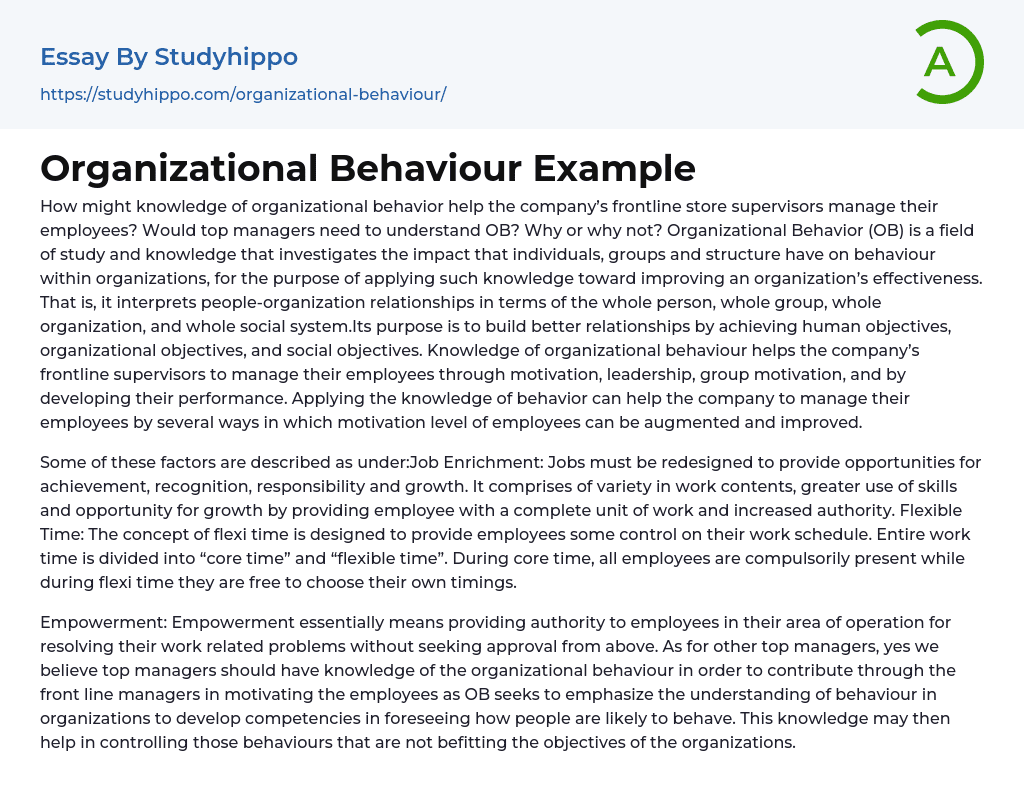Knowledge of organizational behavior can assist frontline store supervisors in managing their employees. Understanding OB is also beneficial for top managers. Organizational Behavior is a field that examines the influence of individuals, groups, and structure on behavior within organizations. Its aim is to improve an organization's effectiveness by interpreting people-organization relationships at various levels. This includes considering the whole person, group, organization, and social system. By utilizing OB knowledge, supervisors can enhance employee management through motivation, leadership, and group dynamics. Additionally, performance development can be achieved. Implementing behavioral knowledge helps companies manage employees more effectively and can boost motivation levels.
Some of the factors described under include:
- Job Enrichment: Jobs must be redesigned to provide opportunities for achievement, recognition, responsibility, and growth. It comprises variety in work
...contents, greater use of skills, and opportunities for growth by providing employees with a complete unit of work and increased authority.
- Flexible Time: The concept of flexi time is designed to provide employees with some control over their work schedule. The entire work time is divided into "core time" and "flexible time". During core time, all employees are compulsorily present, while during flexi time, they are free to choose their own timings.
- Empowerment: Empowerment essentially means providing authority to employees in their area of operation for resolving their work-related problems without seeking approval from above.
Regarding other top managers, we believe it is important for them to be familiar with organizational behavior (OB) as it can assist in motivating employees through front line managers. OB focuses on understanding how individuals behave in organizations and developing the ability to predict their behavior. This understanding can be valuable in
View entire sampleJoin StudyHippo to see entire essay
managing behaviors that are not aligned with the organization's objectives.




